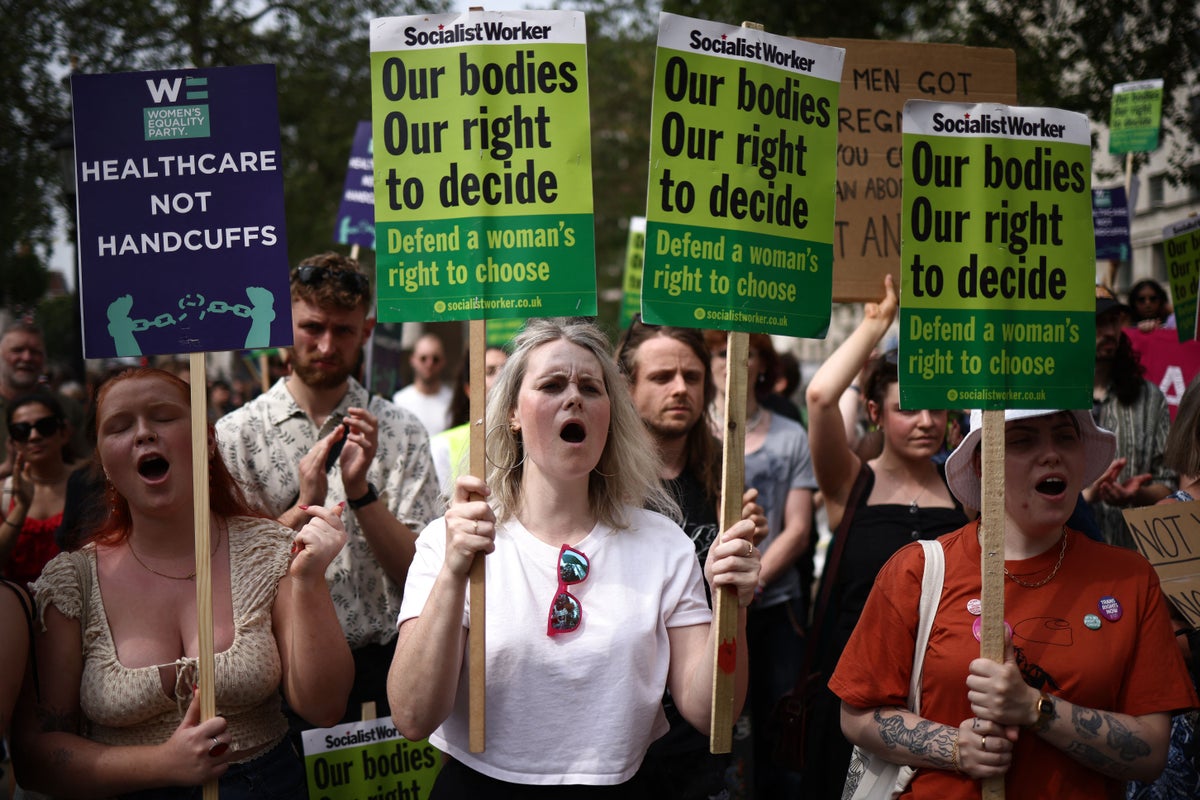MPs have voted to decriminalise abortion in England and Wales in a historic step that will usher in the most far-reaching change to reproductive rights in decades.
After an emotional and impassioned debate in the House of Commons, MPs voted by 379 to 137 in favour of the reform.
They overwhelmingly backed an amendment by Labour MP Tonia Antoniazzi to remove “the threat of investigation, arrest, prosecution, or imprisonment” of any woman who acts in relation to her own pregnancy.
The reform is designed to protect women while retaining penalties for abusive partners or medical professionals who terminate a pregnancy outside the current framework of the law.
During the debate, MPs had argued that the UK’s “Victorian” abortion law was “increasingly used against vulnerable women and girls”.
Under the current law, abortion in England and Wales is a criminal offence but is legal up to 24 weeks, with the sign-off from two doctors.
It is also allowed under limited circumstances after this time, including when the mother’s life is at risk.
Women can also be prescribed medication to end a pregnancy at home if they are less than 10 weeks pregnant.
In recent years, there has been a rise in calls for law reform, coinciding with a growing number of prosecutions of women accused of undergoing illegal abortions.
However, the move faced stiff opposition from the justice secretary, Shabana Mahmood, who described proposed reforms as “extreme”.
Ms Antoniazzi said police had investigated more than 100 women for suspected illegal abortions in the past five years, “including women who’ve suffered natural miscarriages and stillbirths”.
In the Commons, she told MPs: “Each one of these cases is a travesty, enabled by our outdated abortion law.
“Originally passed by an all-male parliament elected by men alone, this Victorian law is increasingly used against vulnerable women and girls.”
Labour MP Lizzi Collinge told MPs that 88 per cent of abortions happen before nine weeks and that the change would protect women from “brutal investigations”, which she described as “intrusive”.
But Conservative MP and father of the House, Sir Edward Leigh, described the reforms as “not pro-woman” and argued they “would introduce sex-selective abortion”.
And DUP MP Carla Lockhart insisted “both lives matter”, saying the changes “would be bad for both women and unborn children”.
Conservative leader Kemi Badenoch voted against Antoniazzi’s new clause one, joined in the “no” lobby by her shadow cabinet colleagues Sir Mel Stride, Richard Fuller, Dame Priti Patel, Chris Philp, Alex Burghart, James Cartlidge, Kevin Hollinrake, Helen Whately, Andrew Griffith, Robert Jenrick, Edward Argar, Stuart Andrew, Gareth Bacon, Alan Mak, Mims Davies, Andrew Bowie, and Jesse Norman according to Commons data.
The issue hit the headlines in recent months with high-profile cases such as those of Nicola Packer and Carla Foster.
Ms Packer was cleared by a jury last month after she took prescribed abortion medicine at around 26 weeks pregnant, beyond the legal 10-week limit.
During her trial, more than four years after the police investigation began, she told jurors that she did not realise she had been more than 10 weeks pregnant.
The case of Ms Foster, jailed in 2023 for illegally obtaining abortion tablets to end her pregnancy when she was between 32 and 34 weeks pregnant, eventually saw her sentence reduced by the Court of Appeal and suspended, after a senior judge said that sending women to prison for abortion-related offences was “unlikely” to be a “just outcome”.
The latest attempt to change the law follows repeated calls to repeal sections of the 19th-century law, the 1861 Offences Against the Person Act, after abortion was decriminalised in Northern Ireland in 2019.
MPs had been due to debate similar amendments removing the threat of prosecution against women last year, before parliament was dissolved for the general election.
Earlier this month, a debate at Westminster Hall heard calls from pro-change campaigners that women must no longer be “dragged from hospital bed to police cell” over abortion.
But opponents of decriminalisation warned against such a “radical step”.
The Society for the Protection of Unborn Children (Spuc) urged MPs to vote against the change, saying it would bring about “the biggest expansion of abortion since 1967”.

